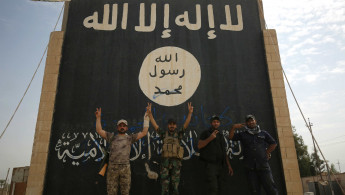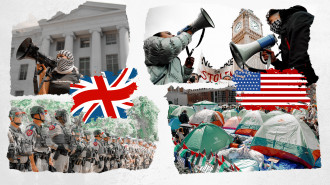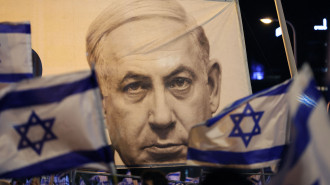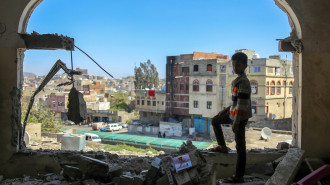Will Iraq fight Islamic State in Syria?
"Iraq is a neighbouring state and is also suffering from Daesh terrorism," Aldar Xelil, a senior Syrian Kurdish leader, told Reuters on 4 April, using the Arabic acronym for IS. "Daesh is present in the shared area between us, and this points to the possibility of conditions arising that would pave the way for joint actions against Daesh."
Xelil's comments come mere days after Iraqi prime minister Haider al-Abadi suggested that Baghdad is preparing to go beyond its own borders to confront IS.
"Our project has developed from fighting terror in Iraq to fighting terror in the region," the Iraqi prime minister claimed on 1 April. "We do not want to exceed our limits, and we will not transgress those of other countries."
Syrian Kurdish forces recently diverted manpower and resources to attempt to fight off the recent two-month long Turkish invasion of their Afrin canton in the northwest. This gave some breathing room to IS remnants in Deir az-Zour province and the wider Euphrates river valley region in Syria's east.
In a first this year, one week in March, the US-led coalition bombed more IS targets in neighbouring Iraq - where Abadi declared IS defeated back in December - than in Syria, since they had less Kurdish-led Syrian Democratic Forces (SDF) fighters to work with on the ground.
 |
'We are trying to find the appropriate means to take measures against the expansion of IS' - Aldar Xelil, senior Syrian Kurdish leader |  |
"After Afrin, Daesh has revived and has started to expand in the region, and has benefitted a lot from the vacuum," Xelil acknowledged. "This is a danger we are thinking about, and we are trying to find the appropriate means to take measures against the expansion of IS."
US president Donald Trump recently voiced his intention to withdraw US forces from Syria in the near future, leading critics to express fears that this could lead to an IS resurgence, since the Kurds may well be left victim to more Turkish aggression and give IS a chance to regroup, reorganise and possibly reconquer territory the US helped Kurdish-led forces capture from the group.
Russian warplanes are reportedly still giving air support to Syrian Army and paramilitary forces in fighting the militants in the Deir az-Zour countryside. IS forces are so well entrenched and "blended in to the landscape of the east Syrian desert that government troops do not often identify them until within ten or so meters (ie point blank range)."
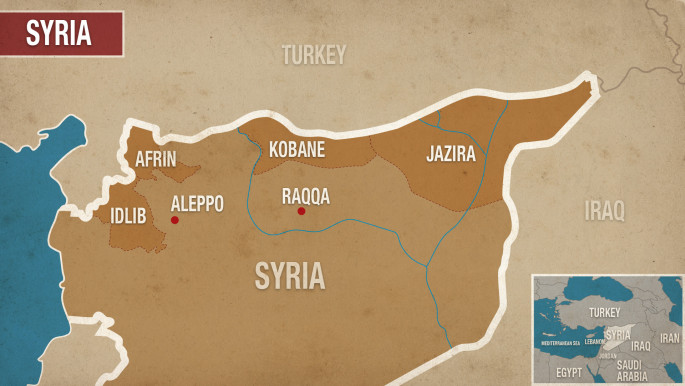 |
|
| [Click to enlarge] |
The SDF and regime offensives, although against the same adversary, are not coordinated. The US supports the SDF with airstrikes while Russian air power supports the regime and its paramilitaries.
Deir az-Zour is a border region for Iraq, meaning it's in Baghdad's self-interest to see IS neutralised in eastern Syria to deny it any opportunity to retake territory there to use as a springboard to once again takeover parts of Iraq.
Iraqi Air Force F-16 jet fighter-bombers already targeted IS in Syria back in February 2017 in retaliation for a bomb attack in Baghdad. At that time, Abadi declared that he would "not hesitate to strike the positions of the terrorists in the neighbouring countries, we will keep on fighting them".
Shortly thereafter the Iraqi premier said that Iraq would launch follow-up attacks against the militants in Syria, declaring that he respects "the sovereignty of states" before adding that he had "secured the approval of Syria to strike positions [in the country]".
Iraq retains friendly relations with the regime in Damascus and even hosts a headquarters for the Russia-Syria-Iran-Iraq coalition (RSII), which also includes the Lebanese-based Hizballah militia, in Baghdad's Green Zone for sharing intelligence on IS and working together to combat the group.
Given the cordial nature of these relations, Iraq analyst Joel Wing, author of the Musings on Iraq blog, has doubts that Baghdad will work with the SDF against IS.
 |
Baghdad and Damascus have discussed military cooperation before against the Islamic State |  |
"I would assume that if Iraq makes an incursion into Syria it would be coordinated with the Syrian government and not the SDF," Wing told The New Arab. "Baghdad and Damascus have discussed military cooperation before against the Islamic State and would probably like to keep any operation state-to-state."
"I don't think they need SDF help," Wing concluded. "The Iraqis will likely go in try to find arms dumps and bases and destroy them and leave."
Such "state-to-state" coordination would entail supporting the aforementioned Syrian army and paramilitary forces offensive against IS. Baghdad could do this by supplementing Russia's air support to these forces - aside from its fleet of F-16s Iraq also has sturdy Russian-made Su-25 attack planes and modern helicopter gunships, which have already seen combat against IS in Iraq itself - or even a launching a coordinated ground incursion with the Syrians.
Whatever the outcome, even a cross-border Iraqi operation into Syria would mark at least a symbolic turnaround for Iraq, given that it's a country which lost one-third of its own territory, and had its border with Syria dismantled, to IS just under four years ago.
Paul Iddon is a freelance journalist based in Erbil, Iraqi Kurdistan, who writes about Middle East affairs.
Follow him on Twitter: @pauliddon
